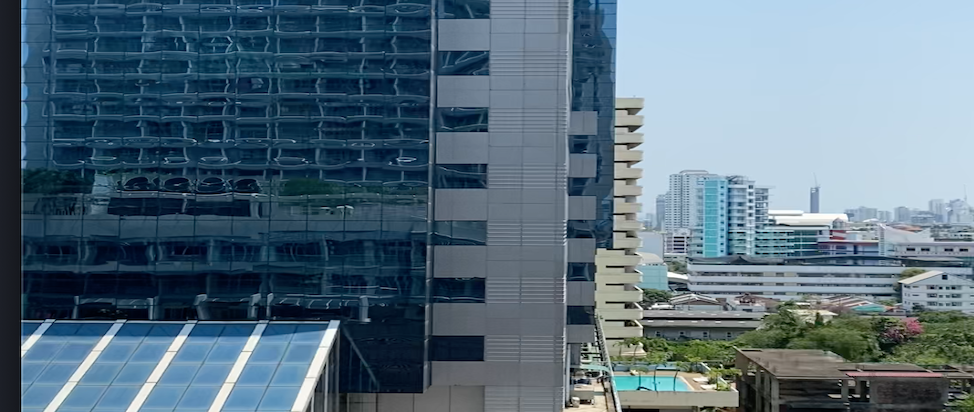
One of the things I love as a British expat (or Digital Nomad, as you like) living in Thailand, and working across SE Asia, is experiencing a variety of different cultures and norms. The psychologist in me can’t help peeking out curiously while I’m running a training course and noting differences and similarities, or the variety of small traditions and rituals of the workplaces across the world.
For example, in China it’s acceptable to spit, and to infringe on others’ personal space. In Thailand, meals can take – literally – hours to arrive, and it’s very rare to find an actual bath in a bathroom.
I thought it might be interesting to ask a number of professionals who’ve made a similar move to share their experiences of living and working in a foreign country. I got some fascinating answers, so have distilled them into two posts, this one on their advice on how to get the most from your new working world, and a second one on the most common challenges and benefits of making such a move. To see who our intrepid contributors are, read the companion piece here.
How can you get the most from your new world?
Perhaps the most obvious piece of advice, but good preparation is essential in advance of the trip. That doesn’t just include the practicalities, although Leah reminds you to “do your budgets so you know you can afford the move there” (and back, in her case, as she had planned to be away for a year), but Ray says it’s also crucial to “be hungry for the job and not just the country”, as the job will take up a considerable portion of your life there.
Leah also suggests “talking to people who have made the move before and find out what was easy, what was hard, and think about how you would handle those situations”. She also suggests trying to connect with someone in your new workplace in advance so you can get advice on hygiene factors like where to live, schools, gyms, etc. so you can settle in quickly once you do arrive.
2. Once you get there, our contributors agreed it was crucial to begin with an open mind. Christine suggests that you “ditch any preconceived ideas” and Zoe considers an “open heart” as important as an open mind. Forget the way your own country does things, and be open to the idea that the way your new country does things is just different, not worse. You’ll save yourself a lot of frustration that way.
3. Adapting yourself to the culture was seen as important by almost every respondent. Rachel says “Understand and respect the culture, rules etc…some people struggle with this one” and Zoe adds “be prepared to adapt, even if it makes no sense to you. You are in their country so be respectful of their customs and traditions.” Jennie would add that it really helps to learn the language: “To be accepted fully and integrate into life in that country you need to be fluent in the language (ideally fairly fluent before you arrive, or if not try to immerse yourself when you arrive).”
4. This leads to ensuring you engage with the culture and the locals. From Andy: “Throw yourself into the local culture as much as you can. The more you understand about people’s daily lives the more you can relate to their take on life and work.” Rachel adds “Make the effort to embed yourself in local life. Don’t view it as transient/temporary or it will be transient, temporary and therefore less satisfying and fulfilling.”
Akash advises: “Learn the language, learn about the history, read the country’s literature, travel around the country beyond the usual sights, go where the locals go. That’s the way to get the most out of it.” Jennie’s view is that you should “experience the culture alongside the locals, try and make friends with natives and not just with expats to give you a true view of life in that country and the cultural differences.” But whilst you build relationships with locals, Ben cautions “don’t expect to (immediately) make friendships with the depth or richness of those you have at home.” He feels it’s worth persevering in building local friendships however – while socialising with ex-pats can be “a great source of support and friendship…it can also lead to the dangers of in-group bias and lack of integration” (yes, Ben’s another psychologist!).
Ben gives an example of a good way he – a Brit in Australia – engages with the local culture, through “my enjoyment of AFL (Aussie Rules Football). Apart from the fact that I actually really enjoy the sport, Australia is a pretty sports-mad nation, and the states of VIC, SA and WA are ‘footy’ crazy. Being able to at least hold a basic conversation and picking a team to barrack for is pretty much essential for workplace banter, but also for building business relationships – particularly in the Resources/ Engineering/Construction focused West of the country.”
5. But don’t forget your home country or other ex-pats. Ray advises you to “maintain links with home”, and Andy says “don’t shun the ex-pat life entirely. You need to recharge and take stock. Adapting to another culture entirely can be exhausting. Don’t feel that hanging around with other ex-pats is a cop out – having something familiar around is a great way to fight fatigue.”
6. Rachel gives some advice on addressing issues with employers: “If there is something causing you discomfort or difficulty, discuss it with your employer with an honest and open attitude without being disrespectful or rude. Make sure you discuss in detail the finer points of your contract – language barriers (speaking from experience) can lead to confusion over such important matters as visas, wages, contract terms. Make sure you have all the information you need before you start working – you don’t want any little surprises further down the road.”
7. Be resilient. All our contributors had experienced moments of doubt, sadness and challenge. Jennie says “Don’t get disheartened – I found life in France to be quite lonely and there were times I wanted to give up and come home when it got too much. If you are getting disheartened get on the phone/Skype to friends and family to remind you how brave you are being.”
Zoe adds “Be prepared for a roller coaster ride – you will have high highs and low lows, try to remember that it’s only natural and the feeling will pass quickly.” Ben advises you to “Be positive – view the experience as an opportunity to experience different things. Soak it up, keep an open mind and make the most of the experience as many people will not have that opportunity. And don’t be disappointed if what you thought was appealing about the new country does not bring you the feelings you hoped it would – this in itself may help you (re)evaluate what is important to you.”
Finally, some wise words from Christine:
“Appreciate that life will be different. Enjoy the differences as much as you can and be patient with those you don’t like. There are advantages and disadvantages to wherever in the world you choose to live.”
Do you work in a different country from the one you were brought up in?
What would be your top advice for those following in your footsteps?
Share it with us in the comments below.









Thanks for this great post!
For me, one of the key tips you’ve mentioned is traveling the country, not just landing in a city. This was very important to me settling into Germany. In fact, traveling all over Europe was a great way of knowing the context in which I chose to live.
Maintaining ties is also important. It almost seems the duty of the person who left to do this. I’ve lapsed in this area and definitely feel it the few times I’ve gone home. Keeping a strong network is probably the best way to prevent reverse culture shock.
Thanks Anthony. Yes, I’m a bit guilty of staying in only one or two places in a country – in Thailand I’ve really mostly spent time in Bangkok, Koh Phangan and Chiang Mai – I’ve done a lot more travel in countries I haven’t been living in! Sometimes the ‘living’ bit can take all your energy when you’re in a new place.
And I agree it seems to be seen as the duty of the person who leaves to maintain ties. I work really hard at this, but there are a few relationships where after a few goes, I’ve stepped back. It can take a lot of energy to maintain networks in several places, that’s certain, and as soon as you move to another place…
Thanks very much for your thoughts!
Yes, I can relate to the problems of culture shock you mention. It’s been a long while since I spent any time abroad but I can sometimes see trauma in my new college students, who arrive from places as far-flung as Nepal and Thailand. One lady was in tears on her first day. Thinking she missed her family, I tried, within the limits of discretion, to comfort her. She startled me by saying ‘Family be damned, there’s nothing in England I can eat!’
Thanks John, and it’s interesting, some of what Maslow might call the basics in our hierarchy of needs can suffer surprisingly when we change countries – the food, definitely, and then for example in SE Asia, a lot of westerners complain about how hard the beds are, as they prefer a much firmer mattress. Small – but very important! – things can really impact us!
Hope you managed to introduce the woman to something she could eat ;-)
Thank you very much Ellen for sharing this words with everyone, is always good to read about how a digital nomad can feel himself. Since I left Spain two years ago I pass through all this sensations, and the language is both, the most important and the most difficult to feel integrated to the new culture, although english is always a good bridge to help. To have good skills is very helpful if you think about starting a new life somewhere else and I also always recommend to read about other digital nomads experiences, for that to join different online communities can be very useful. Like these two that I’m part of:
https://www.facebook.com/groups/859952234028551/
https://plus.google.com/b/104636425240281090149/communities/116433535859046313172
Thanks Joan, and yes, I think networks both on and offline for travellers and digital nomads are critical. This can help both to maintain social ties, but also to solve small issues – for example, knowing which hospital or doctor to go to in a local area might be impossible if you’re just landed, whereas someone who’s lived there for ages can give you an instant recommendation.
Thanks for the comment!
These are really great advice for people who want to be nomads like me.
Thanks Andy, I’m glad you found it helpful. Good luck with being a nomad – it’s a very rewarding lifestyle!